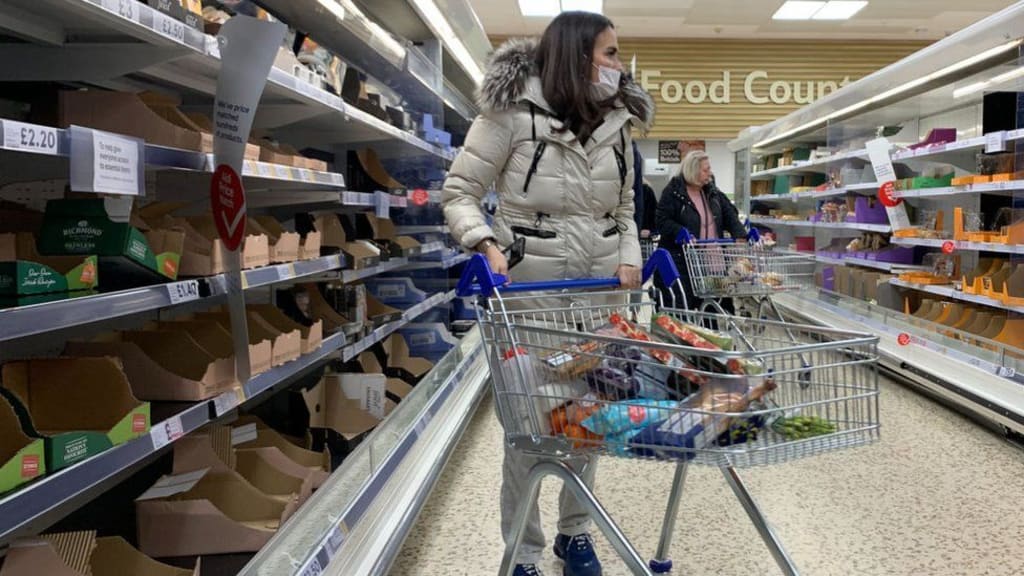
Shopping nowadays is moving to a more online format as businesses have to cope with competitors who will have already gone digital and be able to operate more tasks at the touch of a button. This means that they will need to employ less staff and pay less people in the form of wages etc. The Covid 19 pandemic has only increased the need for online shopping as people are being advised to stay in their homes and not go out unless it is completely necessary. People are only aloud to leave their homes for a number of reasons, one of which includes shopping for necessary items which they need to survive in their daily lives.
When the majority of people think about shopping online, they immediately think about one main site. This is Amazon.co.uk as it is one of the main places where people can shop online and have access to anything that they may want to buy. They can also buy things from a number of different companies through Amazon Market Place so they are not forced to buy from the same place all the time when there may be somewhere cheaper where the same product or service is available.
According to a survey of consumers by KIS Finance, given the choice of only shopping online or on the high-street, 82% of respondents confirmed that they would opt to shop in stores.
Despite the massive increase in on-line sales during the pandemic, which rose by 73% in the period between February and May last year, people still clearly value the opportunity to shop in person. A number of big high street names have already fallen victim to the change in shopping habits of the UK population. This is due to the fact that we are currently in a pandemic and we are being advised not to go in to crowded locations where the virus could spread easily. We are being advised to socially distance when we are out and about in public and wear face coverings to ensure that we don’t accidentally contract the virus from other people who we may accidentally come in to close social contact with.
Due to this many shops only allow a certain number of people in at any one time. This helps to prevent the spread of the virus but also increases the time people have to set aside so that they can go out and buy essential items as they may have to wait outside in a socially distanced queue until it is their turn to go inside.
The lack of footfall in many shops has meant they receive a lack of revenue from business and may in the end have to close as it is not financially viable for them to open up and conduct their normal business. This can have a drastic effect on many local communities as many people may lose their jobs and not be able to provide for themselves or their families.
Jeff Bezos may be stepping down as CEO of Amazon, but there is little sign that the on-line giant will be changing its current approach to dominating the retail landscape. His decision to move to the role of Executive Chairman, has been announced in order to give him the “time and energy” to pursue other interests.
The impact of the pandemic has seen Amazon’s sales in 2020 sore by 38% from the previous year with profits almost doubling to $21.3 billion.
Underpinning this success has been Bezos’ ruthless ability to undercut prices of both physical retailers and other on-line outlets. By controlling costs at every stage, including workers’ terms and conditions and their company tax liabilities, Amazon has seen unprecedented growth that has contributed to the demise of many traditional retailers. This was clearly demonstrated last year in the UK, where their revenues increased by 35%, but their tax bill only rose by 3%.
Due to the effects of the pandemic, Amazon has been known to undercut many local businesses meaning that consumers will buy from them instead of buying locally and putting money back in to the local economy. This can mean that there may not be enough money or funding for any new local developments. Given the increasing number of people who are returning to shop in stores now, it seems like the tide is changing and many local economies will start thriving again in the near future. This is good for local businesses and professionals such as local farmers who may only be able to supply their products to local markets. This helps local communities survive and earn more revenue for everyday essentials which they need to live.